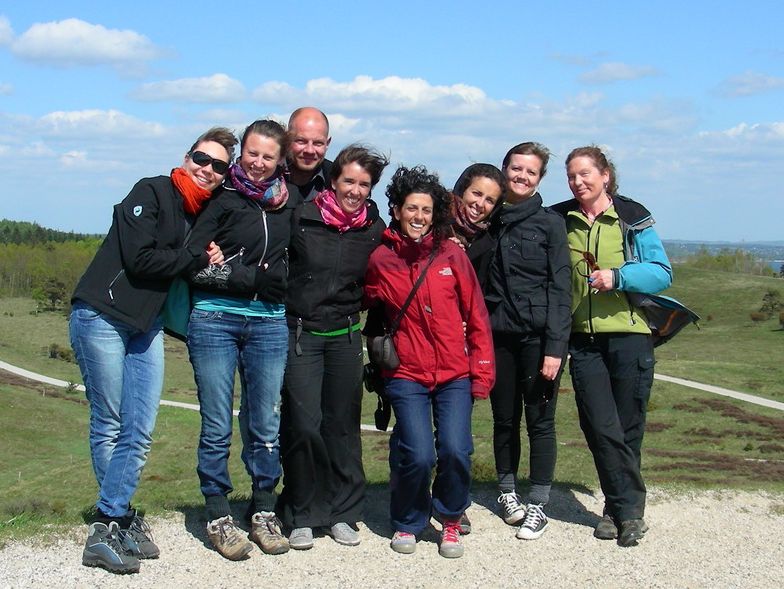Our research group aims to investigate evolutionary ecology and genetics of group living, cooperation and mating systems using spiders as study systems. Additionally, we are interested in understanding the genomic consequences of sociality and inbreeding mating systems, and genetic and non-genetic processes involved in adaptation to different environments.
Our research focuses on the spider genus Stegodyphus (family Eresidae) that contains both social and subsocial (temporarily social) species, which makes it ideal for comparative studies. The social spiders are unique among group living animals, as the transition to permanent sociality is associated with regular inbreeding and highly female-biased sex ratios. Additionally, social spiders cooperate in all colony tasks and show allomaternal brood care including self-sacrifice. We perform field work in South Africa, Namibia, Botswana, India and Israel.
Our research aims to understand 1) the ecology and evolution of sociality, 2) reproductive division of labour and conflict resolution, and 3) population genomic consequences of inbreeding 4) non-genetic processes involved in adaptation.
